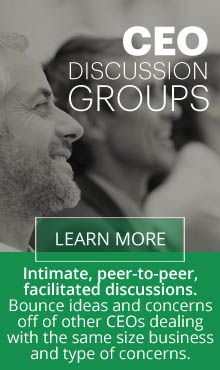 This week we are taking an in-depth look at the 2011 BlessingWhite study on employee engagement. In Tuesday’s post we looked at the key findings and asked questions about how they apply to your organization and you as a leader. In this post we’ll consider some of the implications derived by the authors from the date they collected.
This week we are taking an in-depth look at the 2011 BlessingWhite study on employee engagement. In Tuesday’s post we looked at the key findings and asked questions about how they apply to your organization and you as a leader. In this post we’ll consider some of the implications derived by the authors from the date they collected.
Download the whole report at http://www.blessingwhite.com/eee__report.asp Or read my summary and thoughts in this week’s posts.
Implications
-
Engagement belongs to every body all the time not just to a engagement team or as something apart from the regular work of the company.
Jeri’s thoughts: Engagement isn’t a separate department or something that HR handles. It’s part of the fabric of the company; it’s the strategic plan, values, vision, culture, and every interaction with every employee. It belongs to top management , middle management and each individual worker. As the leader of your business are you taking responsibility and growing a culture of employee engagement?
-
Individuals need clear direction on what the organization is trying to achieve. Each needs to understand his own talents, interests, goals, values. Managers can coach you to clarity on those items. Executives can communicate strategy and set the tone for culture. Ultimately you own your own engagement.
Jeri’s thoughts: Each individual employee owns his/her own engagement. Even with all the other parts of the organization coming together, each employee needs to buy into it. Are you as the leader hiring the right people? How do you know who will become an engaged employee? Interviews and assessments. If you are the employee, what are you doing to take responsibility for your engagement? If you hate your job, go somewhere else where you want to give your all.
-
Managers are the leverage point to coach individuals to align and commit to the objectives of the organization. It’s not so much about what you do as who you are that effects engagement of those you manage. Get to know your people. Understand their special talents and unique engagement drivers.
Jeri’s thoughts: Emotional intelligence is a key manager training and development topic. Relating to individuals to inspire their productivity instead of just considering them pawns in the workflow will encourage retention, lower HR costs, create a high performance team. Does each employee’s personal goals, visions, and values align with the company’s goals, visions and values? As a manager it’s your job to find out and help that alignment happen. You are in a sandwich position of passing down the strategic vision and passing up employee’s needs. If your execs are clear and the hiring has been done well, your job is easier. Know each employee and their special talents, motivations, personal concerns and you’ll earn their trust. Are you taking your role seriously and getting the information you need from each side so you can create alignment? Do your managers know that his is their role?
-
Executives need to speak with passion about the linkage of engagement and business results. You must have the trust of your workforce. Communicate frequently and in depth about the ‘Why’ and the ‘What’. You must hold yourself accountable for building a culture that fuels high performance and engagement.
Jeri’s thoughts: You as the business owner are responsible for the culture you grow in your business. If you link employee contribution to business results, your employees will realize how impactful they can be. Communication, trust, your purpose (the big ‘why’) are all parts of the culture you are responsible for building. Are you taking full responsibility? Speaking about the business purpose, vales, vision?

 Jeri Quinn from Driving Improved Results is an executive coach, management consultant, speaker and author who focuses on communication in her work with executives and companies. She is the author of The Customer Loyalty Playbook, 12 Game Strategies to Drive Improved Results in Your Business. With more than 40 years as a serial entrepreneur.
Jeri Quinn from Driving Improved Results is an executive coach, management consultant, speaker and author who focuses on communication in her work with executives and companies. She is the author of The Customer Loyalty Playbook, 12 Game Strategies to Drive Improved Results in Your Business. With more than 40 years as a serial entrepreneur.

